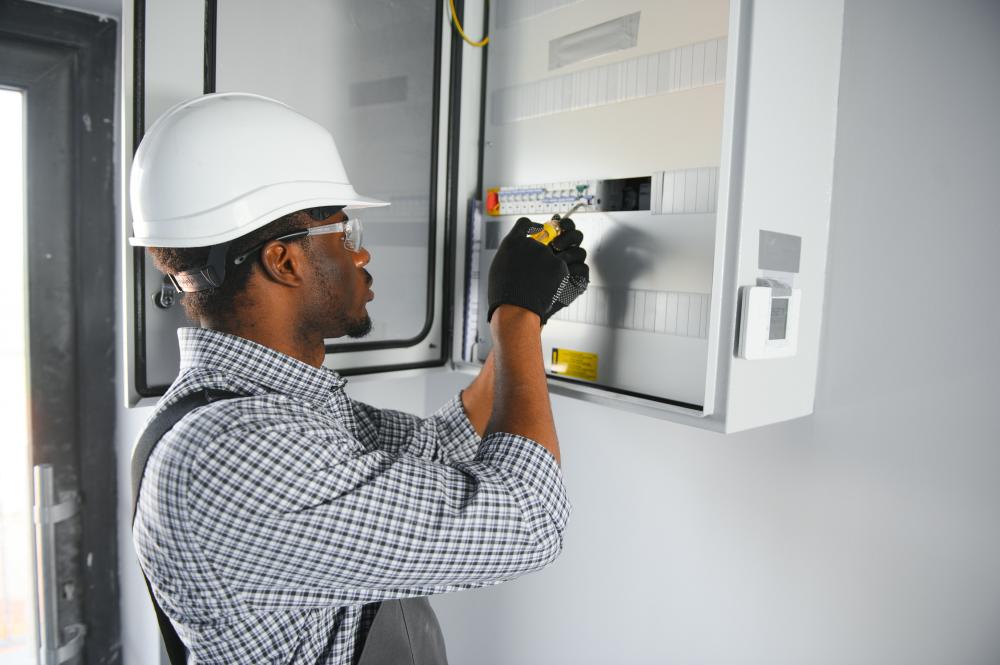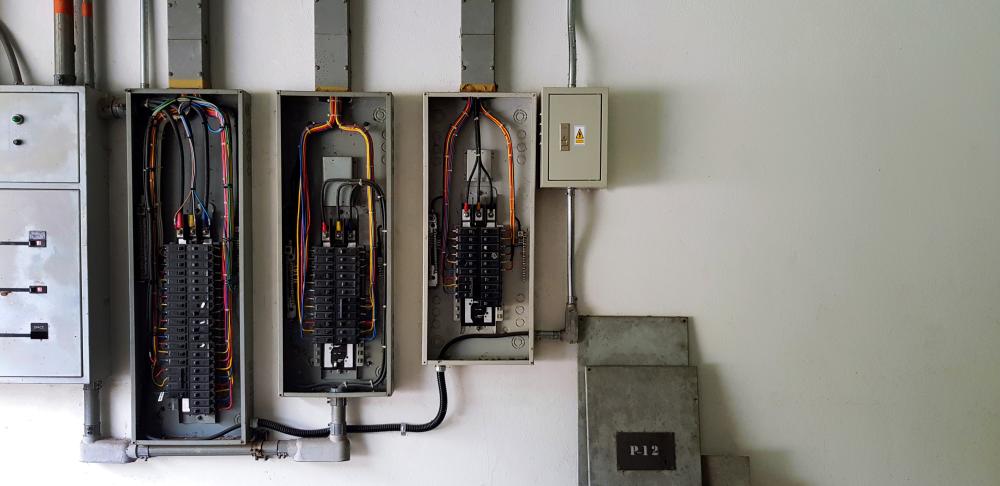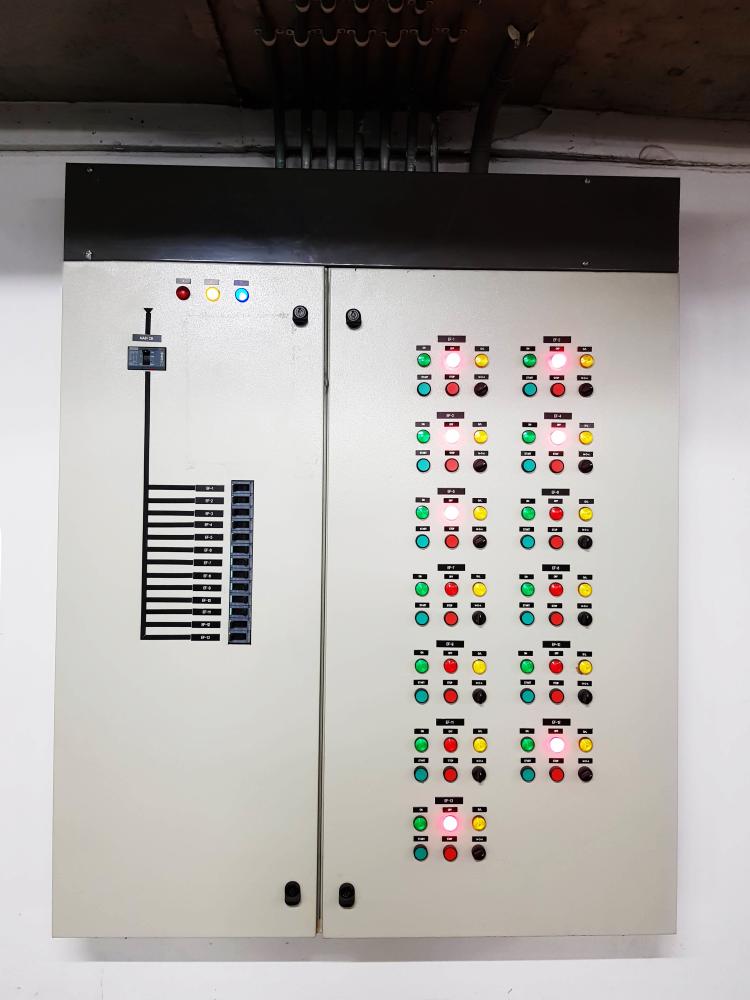Circuit Breaker Repair Cost

How Much Does a Circuit Breaker Repair Cost?
The circuit breaker repair cost can vary significantly based on several factors. From the nature of the issue to the geographical location, there are many elements to consider. In my experience with home maintenance, an average homeowner might spend anywhere from $150 to $500 for a standard repair service. This cost can increase if more extensive work is required, such as replacing the entire circuit breaker panel.
It's crucial to bear in mind that labor rates differ across regions. For instance, obtaining services in a bustling city could be pricier than in a rural area. Additionally, the complexity of the breaker system itself may influence the circuit breaker repair cost, as more intricate systems demand more time and specialized skills to repair.
What Affects the Repair Cost?
One of the primary considerations is the type of issue affecting the breaker. Common problems like a tripped breaker or loose connections might require minimal intervention, thereby reducing the circuit breaker repair cost. Conversely, more severe complications, such as corrosion or a faulty wiring system, may necessitate more extensive repairs.
Materials also play a significant role in calculating the circuit breaker repair cost. High-quality replacement parts generally carry a higher price tag but promise greater longevity and reliability. As a homeowner focused on long-term solutions, investing in superior components often yields better results and, potentially, fewer issues down the line.
Lastly, any emergency repairs undertaken during off-hours could lead to a higher circuit breaker repair cost. Emergency services typically entail additional charges for the convenience of immediate attention, a factor worth considering if you're scheduling repairs during odd hours.
Should You Go DIY or Hire a Professional?
Deciding whether to tackle a circuit breaker repair yourself or hire a professional can influence the overall repair cost. DIY enthusiasts might save on labor costs, but they could inadvertently increase expenses if the repair is not done correctly. I've personally seen homeowners initially attempt to fix electrical issues only to call us later when the problem exacerbated, resulting in higher overall costs.
Professionals bring a wealth of experience and expertise to the table, often diagnosing and resolving issues swiftly and effectively. Thus, despite the upfront circuit breaker service cost, accessing the services of a skilled technician from a reputed firm like Home Alliance is often the most prudent approach. Our comprehensive service ensures that repairs are thorough and minimize the risk of recurrent issues.
For those weighing options, it's essential to assess the complexity of the issue and your comfort level with electrical systems. Safety should always be the foremost priority, and hiring a professional can provide peace of mind in this regard.
Remember, the investment in professional services can add value and ensure the longevity of your breaker system, potentially saving you from higher costs over time.
Maintenance Tips to Manage Costs
Prevention is often the best approach to managing costs in home maintenance. Regular inspections by qualified technicians can help identify potential issues before they escalate, thereby potentially reducing the circuit breaker repair cost. Scheduling an annual check-up with Home Alliance, for example, allows our experts to catch early signs of wear or damage.
Simple routine checks, like testing the breaker switches manually and ensuring there's no moisture accumulation, can be performed without professional intervention. Keeping a diligent eye on your circuit systems can drastically reduce unforeseen repair expenses.
Additionally, it's wise to maintain a log of any repairs or inspections conducted, noting both the issues identified and the interventions applied. This record can be an invaluable resource during future repairs, providing technicians with background on the system's history.
Ultimately, being proactive with your electrical systems and engaging in preventive maintenance can help manage the circuit breaker repair cost effectively, ensuring your home remains a safe and well-functioning environment.

Importance of Electrical Panel Upgrade
At Home Alliance, we know that upgrading to a 200 amp electrical panel is not just an option; it's a necessity for many modern households. With the increasing number of devices and appliances that require electricity, an outdated panel can become a bottleneck. Imagine trying to power a house full of smart devices, energy-hungry appliances, and perhaps even electric vehicle chargers with an old panel--it's like trying to funnel a river through a straw. The electrical panel upgrade to 200 amp ensures you have the capacity to meet current energy demands without constant tripping of breakers.
Our professional experiences reveal that many homes built several decades ago are equipped with 60 or 100 amp panels, which fall short in the face of contemporary energy consumption. Customers often come to us frustrated by frequent electrical issues, only to discover that a simple upgrade could alleviate these problems. By choosing an electrical panel upgrade 200 amp, homeowners not only enhance safety but also future-proof their properties against the inevitable rise in energy usage.
The Process of Upgrading Electrical Panels
We always tell our clients that understanding the process of an electrical panel upgrade 200 amp helps to demystify it. Initially, a licensed electrician from our team will assess your current electrical setup to devise a tailored upgrade plan. Safety is our top priority, so we ensure that your home is compliant with all local electrical codes and standards before proceeding with the installation. This meticulous planning is akin to plotting a journey with a detailed map in hand.
The actual installation involves replacing your existing panel with a new, more powerful 200 amp panel. This step is crucial to providing the additional capacity that's often required for new appliances or home additions such as solar panels. Think of it as swapping a small backpack for a larger one to carry more essential gear for your adventures. We coordinate with utility services to minimize downtime and keep your home running smoothly throughout the process.
Our experience has shown that this upgrade not only enhances your home's capacity but can also increase its value. Potential buyers view a 200 amp panel as a selling point, knowing they can move in with the confidence that the electrical system can handle modern energy needs. It's a win-win situation that pays dividends in comfort and convenience.
Benefits and Considerations
Deciding on an electrical panel upgrade 200 amp can be life-changing for your home's electrical efficiency. One of the greatest benefits is the reduction in electrical risks, such as fires or damaged appliances, which often stem from overloaded systems. It's like adding a surge protector to your entire home--peace of mind in knowing your home is as safe as possible. Additionally, your home becomes more energy-efficient since the new panels facilitate a smoother distribution of power.
There are practical aspects to weigh as well, and we at Home Alliance are transparent about the entire process. From a financial perspective, while there is an upfront cost, the long-term savings on electrical repairs and increased home value are compelling. It's similar to investing in a high-quality mattress; the initial cost is justified by years of restful nights. We guide our clients through potential costs and savings, ensuring they make informed decisions.
Lastly, it's the little stories from our clients that remind us why we do what we do. One client, a passionate baker, struggled with a constantly tripping oven breaker. After upgrading to a 200 amp panel, she was not only able to operate her oven and other appliances simultaneously but also pursued a small home-based bakery business. Each upgrade tells a story of enhanced possibilities, making it more than just an electrical improvement--it's a doorway to new opportunities.

How much should it cost to replace a circuit breaker?
At Home Alliance, we understand that the cost to replace a circuit breaker can vary depending on several factors. On average, replacing a single circuit breaker might range from $150 to $200, including both parts and labor. However, if your electrical panel is outdated, or if you require more extensive work, the cost could increase. We've seen scenarios where a full panel replacement bumps the price significantly, but those are typically less frequent. Remember, investing in quality parts and professional service can save money in the long run by avoiding frequent repairs.
If you are contemplating a replacement, feel free to contact us for a personalized quote. Our approach is always to provide clear estimates and detailed explanations, ensuring you understand the costs involved.
Do I need an electrician to replace a circuit breaker?
Replacing a circuit breaker involves dealing with high-voltage electricity, which requires specialized knowledge and experience. At Home Alliance, we highly recommend hiring a licensed electrician for this task. While DIY methods might seem appealing, the risks of improper handling include electric shock, fire hazards, or causing further damage to your electrical system.
Our professional electricians are well-equipped to assess the situation accurately and perform the replacement safely and efficiently. The peace of mind that comes from knowing the job is done right is invaluable. Plus, think of the assurance that your home's electrical system is in good hands!
Have you ever tackled a home project yourself and regretted not calling in the professionals sooner? We'd love to hear about your experiences in the comments below.
Can circuit breakers be repaired?
In many cases, circuit breakers can indeed be repaired, depending on the issue at hand. Common problems like loose connections or minor wear might only require simple maintenance or adjustment. However, more serious issues, like internal damage or corrosion, could necessitate a replacement.
At Home Alliance, we always conduct a thorough evaluation to determine the best course of action. Repairing a circuit breaker can be a cost-effective solution, but it's crucial to ensure the repair is reliable and safe. Our technicians are trained to identify whether a repair is viable or if a replacement is the more prudent choice.
If you notice frequent tripping or other issues with your breakers, it might be worthwhile to schedule an inspection. We're here to help you maintain a safe and efficient electrical system.
How long does it take for an electrician to fix a breaker?
Typically, we find that fixing a circuit breaker can take anywhere from 30 minutes to an hour, depending on the issue's complexity. At Home Alliance, our priority is not just to fix the problem promptly but also to ensure that it's done right. We dedicate time to a full assessment before starting the repair to avoid overlooking any underlying issues.
Once we identify the problem, our experienced technicians work efficiently to resolve it. This might involve reseating or replacing a faulty breaker, tightening connections, or addressing any wiring issues. We strive for minimal disruption to your day, ensuring that your electrical systems are back to full functionality as swiftly as possible.
Considering the time, would you be interested in learning quick troubleshooting steps you can take before calling a professional? Let us know!
What should I include in my routine circuit breaker inspection?
Regular inspections are crucial for maintaining the health of your electrical system. At Home Alliance, we recommend checking for visible signs of wear or damage, such as scorch marks around the breaker, unusual noises like buzzing, or an odd smell emanating from the panel. All these can be indicators of underlying issues.
Conduct a manual test of your breakers by flipping them off and then back on. This helps ensure they're functioning correctly. You should also check for any moisture or rust, as these can lead to serious electrical problems.
Finally, keep a record of any inspections or repairs performed, as this can be incredibly helpful during future maintenance or repairs. Regular professional inspections are also recommended to catch issues early. Are there specific circuits in your home that concern you? We're here to answer any specific questions you might have!
What are the benefits of upgrading to a 200 amp electrical panel?
Upgrading to a 200 amp panel is more than just increasing capacity; it's about future-proofing your home. At Home Alliance, we often see customers struggling with outdated panels that can't support modern electrical needs, leading to frequent tripping, especially with energy-hungry devices.
A 200 amp panel provides several benefits, including improved safety and efficiency. It will accommodate additional circuits and larger appliances, from electric vehicle chargers to modern HVAC systems. Plus, many homebuyers see this upgrade as a selling point, potentially increasing your property's value.
Have you considered how an upgrade might affect your home's value or your quality of life? Let's discuss your energy needs, and we can help plan a pathway to a more robust electrical system.
Resources
- National Fire Protection Association (NFPA) - The NFPA provides valuable information on electrical safety and fire prevention.
- U.S. Department of Energy - The Department of Energy offers resources on energy efficiency and electrical system upgrades.
- U.S. Consumer Product Safety Commission (CPSC) - The CPSC focuses on protecting the public from risks associated with consumer products, including electrical devices.
- Electrical Safety Foundation International (ESFI) - ESFI is dedicated to promoting electrical safety in homes, schools, and workplaces.
- U.S. Fire Administration - The U.S. Fire Administration provides resources on fire prevention and safety tips for homeowners.

